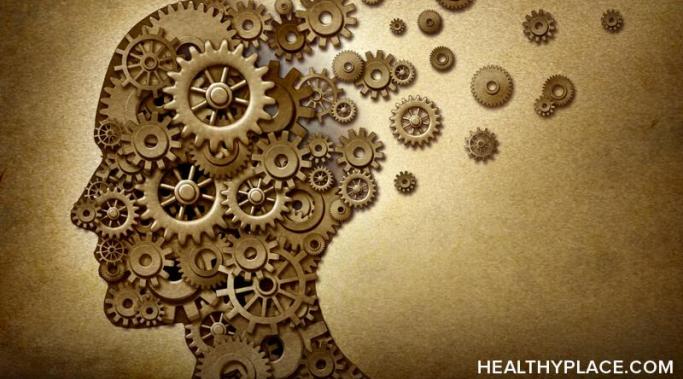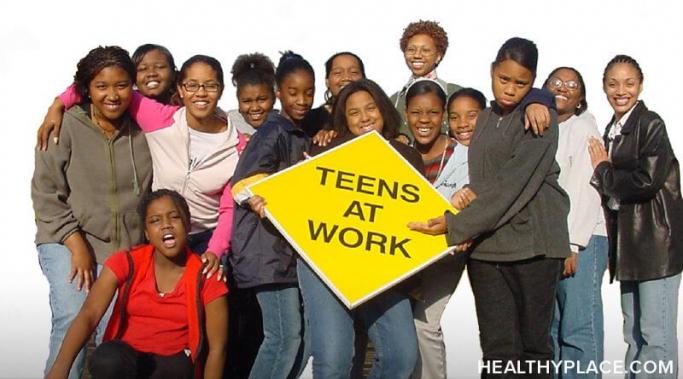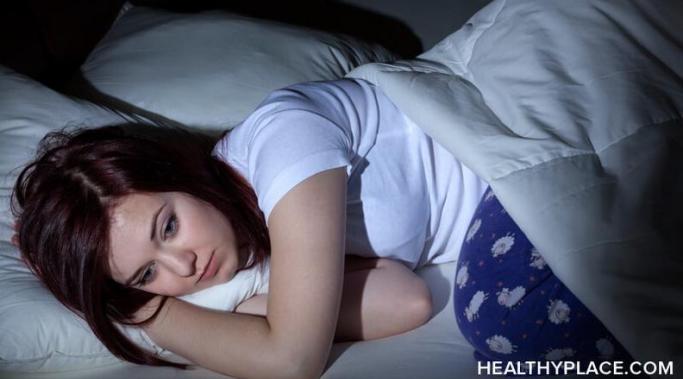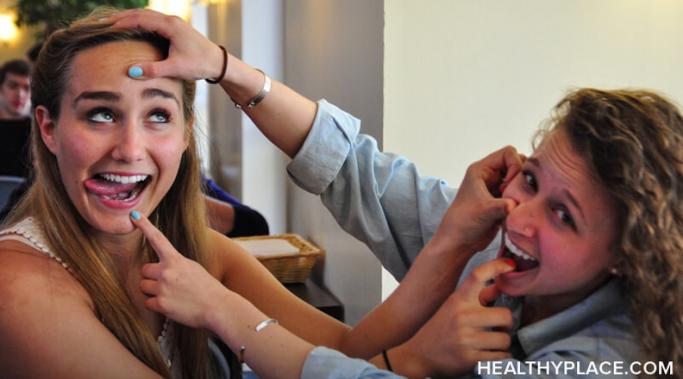Mental illness in youth can be triggered by many life events and it's not always easy to spot. After all, when you're a child, you're constantly discovering new emotions. But where do we draw the line? When do we decide that it's a little more than just the common emotions of growing up? The quicker we see mental illness in youth, the better.
Mental Health Video
One of the hardest symptoms of bipolar disorder is racing thoughts. These racing thoughts can lead to flashbacks of things you've tried to forget. When I'm manic, I'm left with little-to-no sleep because I just can't seem to shut my mind off. I'm left reliving every bad thing that has happened to me and I begin to obsess about everything that could happen to me. Bipolar's racing thoughts are hard to deal with.
My name is Shelby Tweten and I’m the new coauthor of Mental Health for the Digital Generation. I have struggled with mental illness as long as I can remember. I am diagnosed with bipolar type II as well as borderline personality disorder, but I was wrongly diagnosed for years. I first went to therapy when I was eight years old. Originally labeled as depressed, when I was 14, I was put on medication that later threw me into a medically-induced manic episode. After being diagnosed with bipolar when I was 17, I decided to audition for American Idol. On the show, I talked about my struggle with bipolar and how music helped me get through it. With all that going on and still being in high school, staying on medication was hard for me. When you're good, you think you're fantastic, which leads you to think you can handle life without your medication. This is wrong.
Coping with the suicide of a friend is one of the most excruciating, incomprehensible things a person can experience. It leaves behind a wound that will seemingly never heal. Read on for some information on how to cope with the suicide of a friend.
Do you know about the interaction between summer and social and the importance of rest? You’re not alone.
I’m Mel Lee-Smith, and I’m excited to join the Mental Health for the Digital Generation blog at HealthyPlace. I was diagnosed with borderline personality disorder in 2012 when I was 18 years old. Like many borderlines, my teenage years were troubled. I grew up in a poor family; I was bullied throughout my school years for my looks; I struggled with self-harm, a poor self-image and the absence of my biological father. To cope – or perhaps distract – I engaged in impulsive, promiscuous, and dangerous habits. Despite all that, I made it my goal to get out and make a better life for myself.
Confronting weight gain on psychiatric medications is a major problem for many people consuming these types of medicines (Weight Gain in a Pill). It is almost as if the more your mental health improves, the more weight you gain. However, psychiatric medication weight gain can be coped with.
In a society that demands a perfect body and a perfect mind, it is no surprise to understand why it's hard to accept a diagnosis of a mental disorder. The lack of knowledge people have about mental health leads to minimal support for those struggling with a mental health condition. This is a challenge for many young adults who receive a diagnosis in which they know little to nothing about. The stigma of mental illness and the treatment for mental health conditions are two main reasons why it's hard to accept a diagnosis of a mental disorder.
The dating rules for revealing your mental illness are important to know when getting back into the dating scene. In general, dating can be nerve-wracking, but dating with a mental illness can cause even more anxiety (Should You Tell People You Have a Mental Illness?). The stigma of mental illness prompts insecurities and feelings of inadequacy when it comes to dating. Those of us with a mental illness may approach dates with the notion that we are damaged goods. The truth is, most people are insecure about dating. It is important to know the dating rules for revealing a mental illness to prevent added stress. A mental health condition does not make you flawed, or unattractive. It adds an authentic element to your life that challenges you but does not define you.
When I came forward about my diagnosis of bipolar II, I saw that, in spite of stigma, young adults talk about mental health. This is not an easy task for people of any age (Coming Out of the Mental Illness Closet). I was told revealing my diagnosis and opening up about mental health would diminish a lot of opportunities for potential careers and relationships in the future. As young adults, we are striving to be independent, find stability and happiness. It is a vulnerable period in life. The pressure of completing our education, finding jobs, and maintaining relationships is stressful and impacts our mental health. Talking about mental health is difficult in spite of stigma. However, many young adults are utilizing social media platforms to open the conversation about mental health and stigma.









